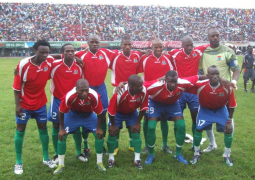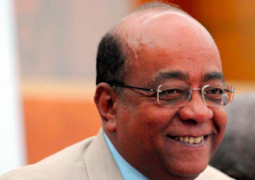Farmers in Saba SaJally District in the North Bank Region and Nianija District in the Central River Region North have applauded the management of the AUSAID project under the National Agricultural Research Institute (NARI), for impacting their livelihood during the three-year implementation of the AUSAID Project in their various districts.
They underscored the importance attached to the project and the transformation the project had made in their livelihood, ranging from provision of fertilizer, cowpea, and groundnut seeds to the availability of other farming inputs.
They were speaking at a daylong meeting held at Chamen Training and Seed Multiplication Centre on the closure of the AUSAID project in The Gambia, organised by the National Agricultural Research Institute (NARI).
Farmers in the two districts expressed satisfaction and appreciation with the way and manner the AUSAID project was piloted and implemented in their various districts.
They therefore appealed to the governments of Australia and The Gambia to reconsider renewing the project to increase production and productivity as well as to reduce poverty.
The Chief of Nianija District, Faraba Jallow, expressed his gratitude to the management of AUSAID for the intervention in their District.
Since its intervention, he noted, the project had provided them with cowpea seeds, groundnut seeds and fertilizers, which had improved their production and productivity in their farming system, as well as made positive impact in their livelihood.
“We have seen the benefits of the AUSAID Project and the difference the project has impacted in us during the past three years compared to the earlier intervention of the project,” the chief said.
He seized the opportunity on behalf of the farmers to appeal to the government of Australia for an extension of the project and its continuity.
Adama Cham, a renowned farmer at Chamen Nianija, commended the management of AUSAID in The Gambia for ensuring the project was piloted in Nianija district with the aim of realising food security in the country.
He highlighted some of the benefits the project made them realise in the past three years, adding that he was able to buy a motorcycle as a result of the project intervention.
He also joined the previous speakers to appeal to the government of Australia for a renewal of the AUSAID project, and to provide them with more farming equipment for farmers to realise better production and productivity.
Amie Cham, female farmer from Chamen Nianija, also thanked the management of AUSAID for their empowerment of farmers, saying the knowledge gained through capacity building during the three-year implementation of the project had made an improvement in her application of best practices in their farming system to earn a better yield.
Also on behalf of the female farmers, she appealed to the Government of The Gambia and the Australian government to reconsider extending the life of the project.
Speakers after speakers underscored the importance attached to the project and the impact it had made on the lives of the farmers.
They also thanked the management of the AUSAID coordinating team in The Gambia under the project coordinator, Madam Mama Saho.



